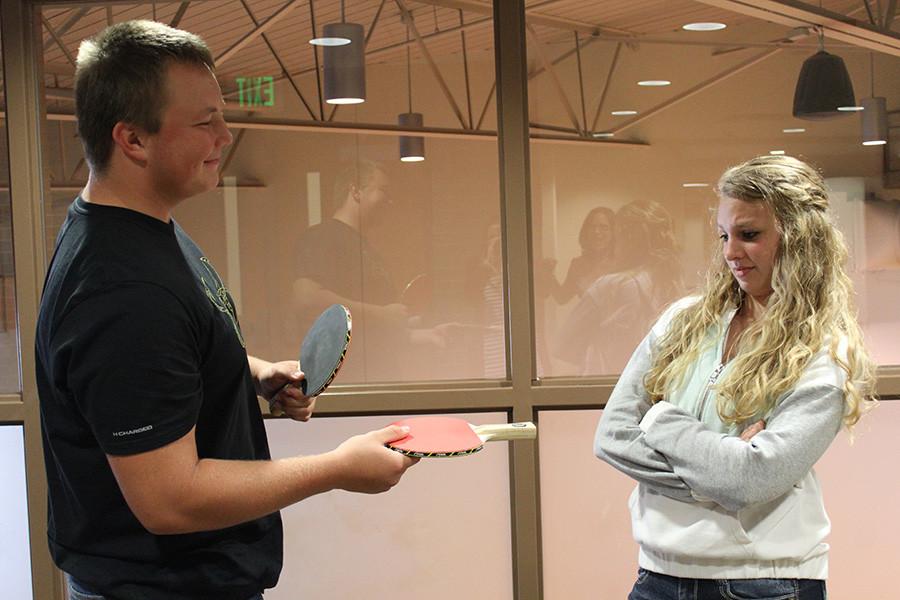Ping Pong Power
Portage Northern’s thoughts on table tennis
Table tennis is the most popular racquet sport in the word, and is ranked second overall when measured in participation. It’s not a secret that ping pong players are amazingly agile, focused, and fast. But does table tennis belong in the Summer Olympic Games? Students at Portage Northern seem to have their own opinions about this controversial topic.
“I think it’s a sport. It’s physical and you have to have good hand eye coordination,” says Jessica Begeman (10). “Players in the olympics always look really fit,” says Nirvisha Singh (10). “They probably have to work on speed, accuracy, and curve of the ball,” says Singh.
Table tennis has been in the Summer olympic games since 1988. Yoo Nam-Kyu of Korea was the first person ever to win a gold medal in table tennis during the games in 1988. In fact, U.S. National team members practice table tennis at least 5 days a week and lift weights 3 days a week. It is really important for them to have strong legs and abs to be competition ready. “I think it’s a sport. It requires physical strength,” says Kaci Farley (12).
Some people are all about ping pong. “I love ping pong,” says Erik Harrington (12). Others don’t even know what it is. “It’s kind of like beer pong, right?” says Jay Garside (12). Unlike beer pong, olympic table tennis players have an approved ITTF equipment. Their paddles have to be at least eighty five percent wood. Portage Northern students seem to really enjoy the occasional game of ping pong and agree that table tennis is in fact, a sport.
Random Facts on Ping Pong:
No player from the United States of America has ever won a medal in the Olympics for table tennis.
In singles, the top 16 seeds advance straight into the round of the last 32.
The team events for the men and the women are played in two stages. A round-robin stage with groups of four teams is followed by playoffs.
The group winners play for gold and silver, while the runner-ups compete with the semi-final losers for the bronze medal.




